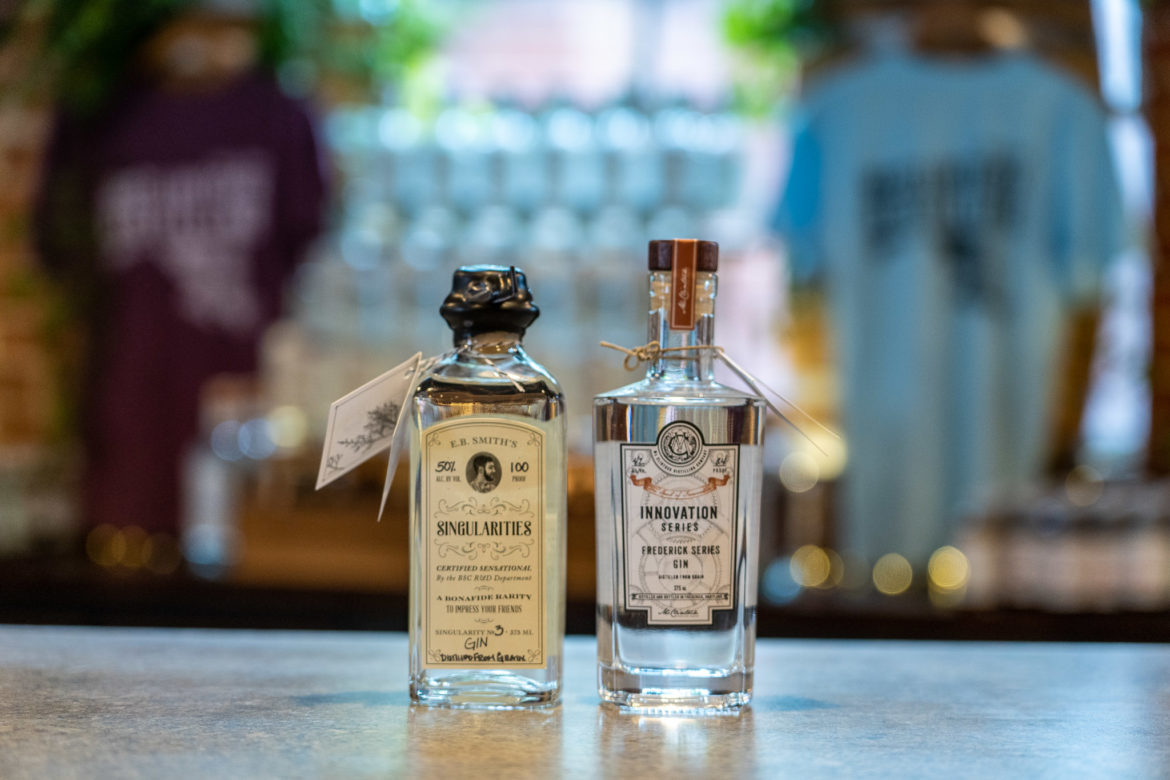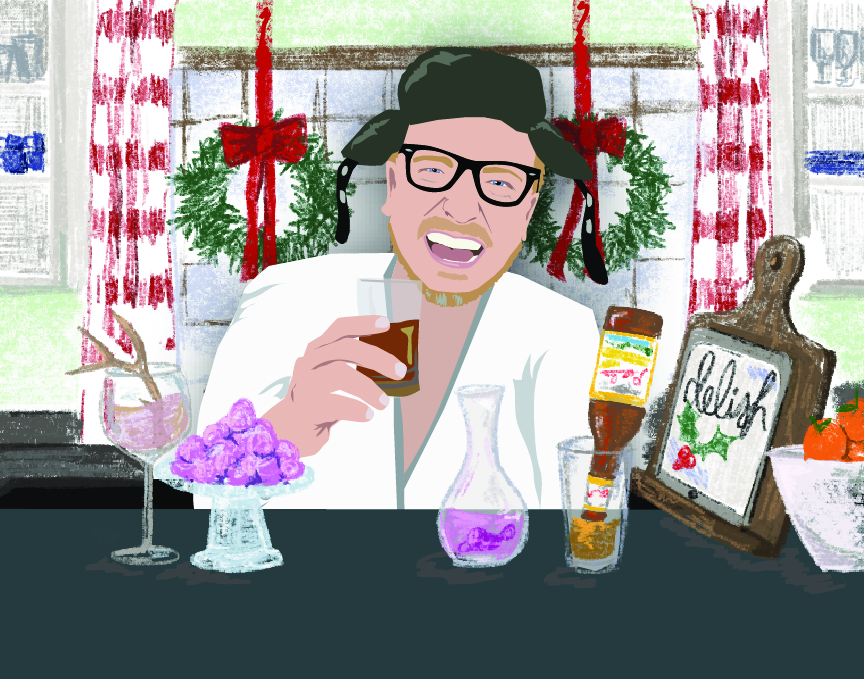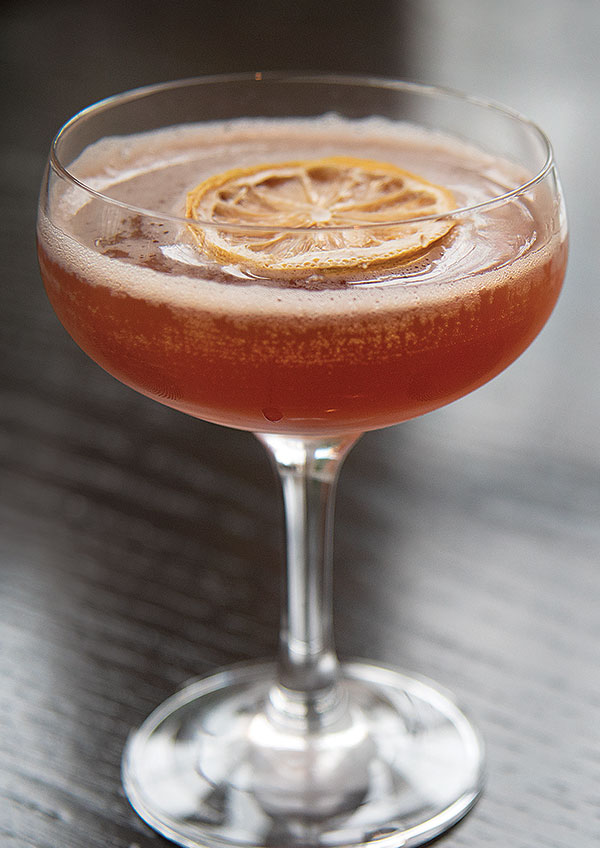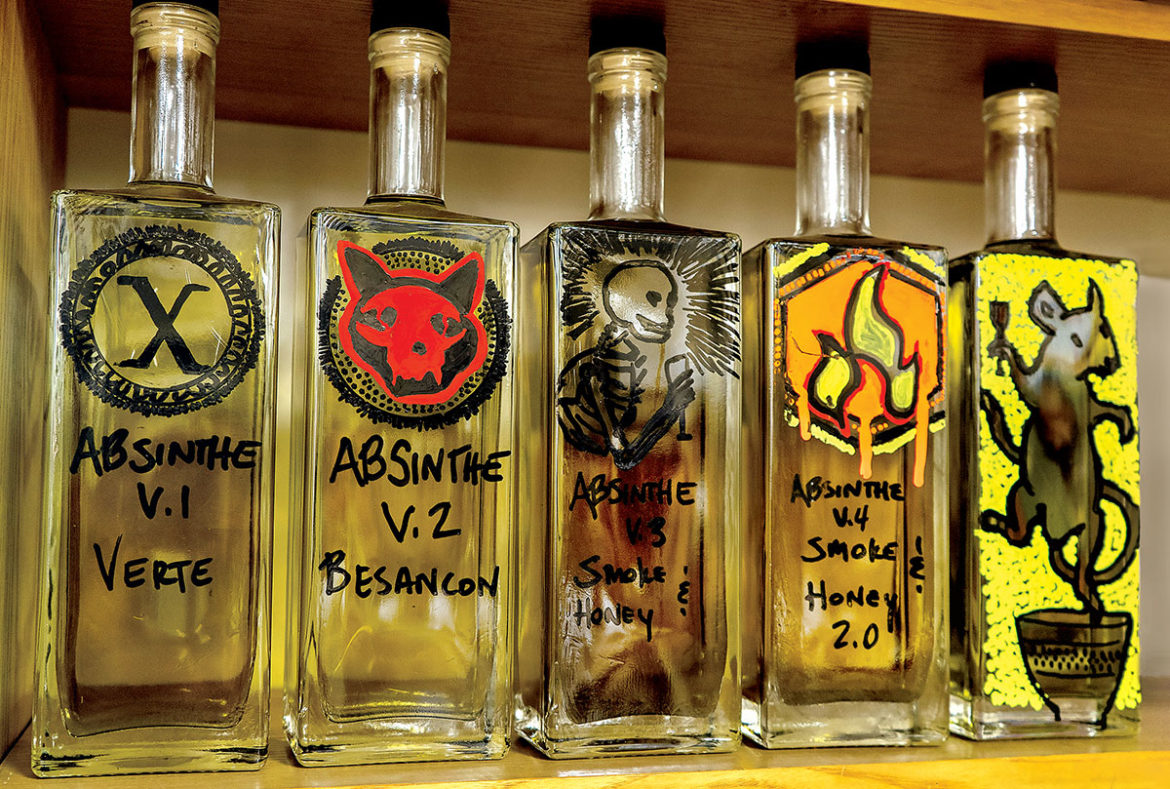By Kate Masters – kmasters@newspost.com
Another Frederick distillery is committing to a spirit nobody knows how to pronounce.
Genever (or is it JEN-uh-ver? Ye-NAY-ver?) is the newest release from McClintock Distilling, the organic-certified distillery on Carroll Creek responsible for some of Maryland’s best gin. Since Braeden Bumpers and Tyler Hegamyer opened the business in 2017, McClintock has earned accolades from the New York International Spirits Competition, San Francisco Spirits Awards and the American Distilling Institute. Their experience with dry-style gin — made with a neutral spirit rather than a heavier grain mash — piqued the owners’ interest in a more traditional form of the liquor.
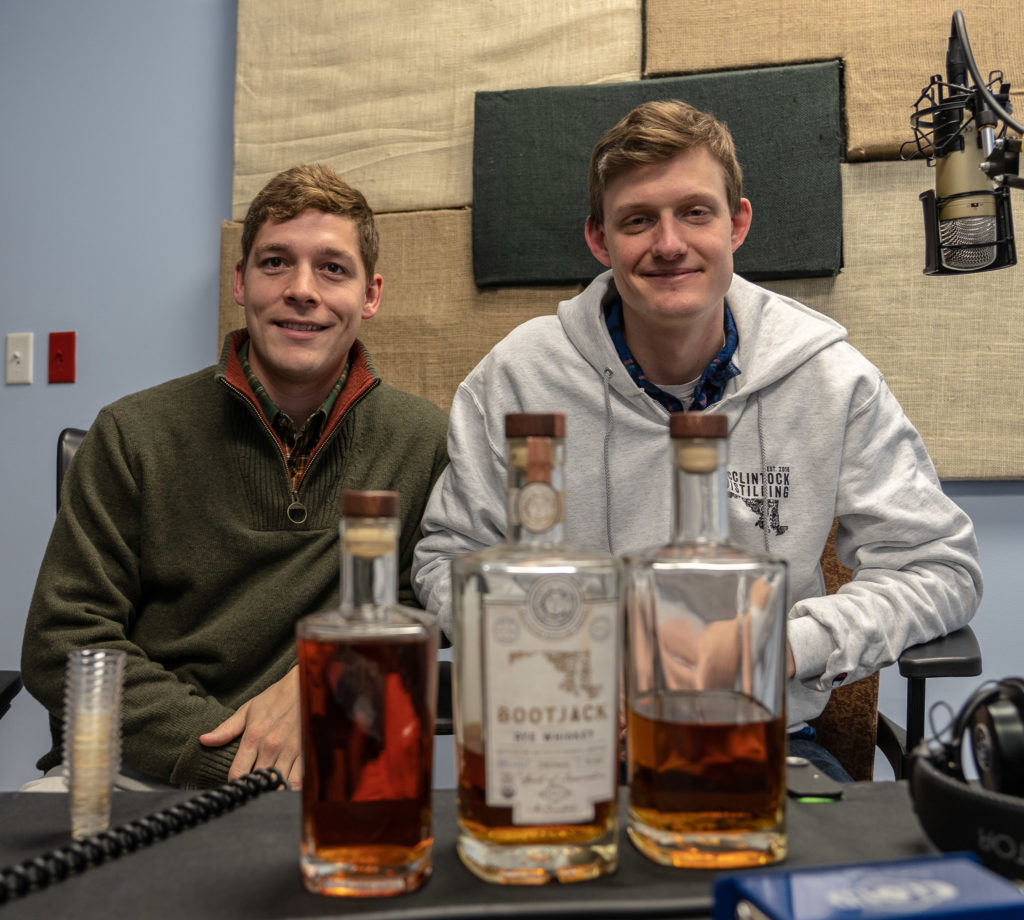 “This is an idea we’ve been kicking around for over two years now,” Bumpers said. “We’re kind of gin nerds, so we thought it would be cool to produce a genever with a rye whiskey base — kind of a mix between the Old and New World.”
“This is an idea we’ve been kicking around for over two years now,” Bumpers said. “We’re kind of gin nerds, so we thought it would be cool to produce a genever with a rye whiskey base — kind of a mix between the Old and New World.”
Bumpers was referring to the traditional method of producing the spirit. Historically, genever started with a malted barley mash run through a simple pot still, transforming the grains into a low-alcohol distillate commonly called “low wine” (the low-proof liquor was typically distilled at least once more to raise the alcohol content).
Instead of starting with barley, though, McClintock relied on rye. Bumpers and Hegamyer exchanged the mash from their Bootjack Rye Whisky with the Baltimore Spirits Company — a fellow distillery — which, in turn, sent the mash from its Epoch Rye to Frederick. The collaboration resulted in two distinct genevers, both released last Saturday as part of a limited-run series.
Officially, the spirits are labeled as gin, a technicality of the Alcohol and Tobacco Tax and Trade Bureau (TTB) and its official labeling requirements. McClintock is selling its genever as the “Frederick Series Gin,” while the Baltimore Spirits Company labeled its version as “Singularity No. 3 Gin.” McClintock’s version — like three other gins produced by the distillery — is also vapor-infused, a more modern process that some say produces a subtler botanical flavor.
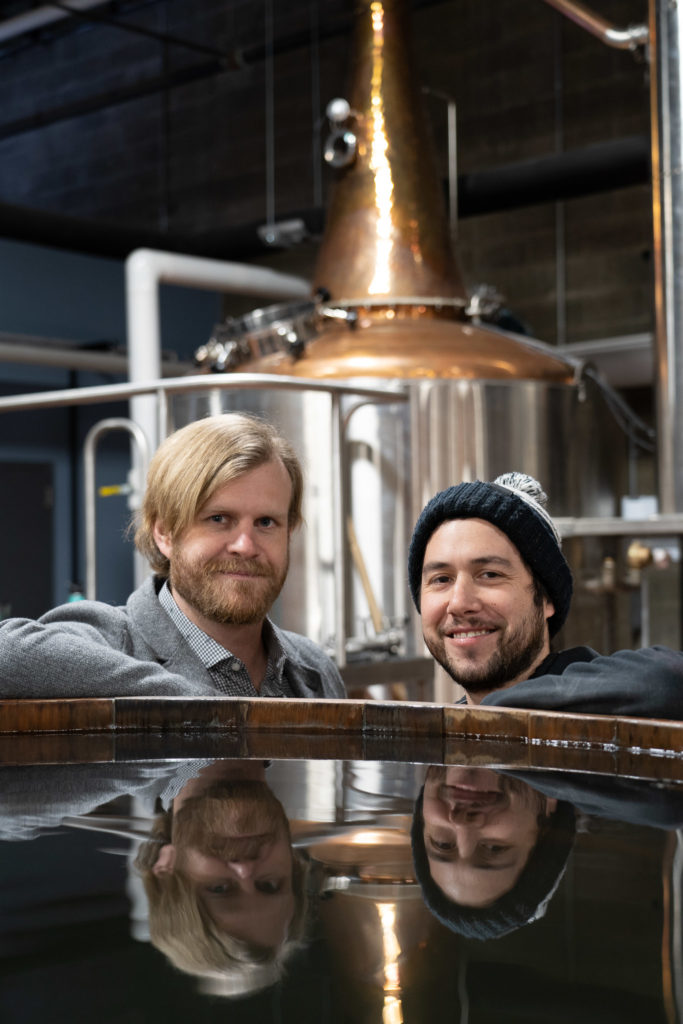 “Neither is right or wrong, there are just different methods of doing things,” said Max Lents, a co-founder of the Baltimore Spirits Company.
“Neither is right or wrong, there are just different methods of doing things,” said Max Lents, a co-founder of the Baltimore Spirits Company.
His business produces gin more traditionally by steeping botanicals in the spirit, but the main difference between both genevers, he added, comes from the difference between the two mashes.
McClintock exclusively uses unmalted rye to produce Bootjack, while Baltimore Spirits Company uses a mix of malted and unmalted grains. The malting process — which involves germinating and then drying the grains — produces various flavor-changing enzymes, which tend to affect the final product.
Both distilleries used the same botanicals found in their trademark gins, which, for McClintock, includes cardamom and grains of paradise.
“Ours definitely came out more spice-forward,” said Bumpers, who used the malted mash in McClintock’s final genever. “It has these malty, chocolate-espresso notes, while theirs has more of the banana, tropical fruit notes.”
Both spirits are markedly different from the better-known London Dry-style gins, which — as their name implies — pair low sweetness with a neutral base. Genever is often described as halfway between gin and whiskey, with the botanical profile of gin and malty finish of whiskey.
“It’s a category of its own,” Lents said. “I would describe it to someone as a marriage of the two and let them figure it out.”
The spirit also has a storied history, added Jeff Harner, the co-owner of Sangfroid Distilling in Hyattsville. His company was the first contemporary distillery to produce genever in Maryland, and the product has strong ties to co-founder Nate Groenendyk and his Dutch lineage.
“The story, as he tells it, is that his grandparents used to complain about the gins most available in the U.S.,” Harner said.
Genever originated in Holland in the late 13th century and became a national specialty until British soldiers discovered the beverage while fighting side-by-side with the Dutch in the Thirty Years’ War. Those same British soldiers brought the spirit home, where it evolved into London Dry Gin thanks to advances in distilling technology.
As for the pronunciation? It varies depending on the region. Harner goes with ye-NAY-ver, the traditional Dutch intonation.
“There’s the Dutch way, the Flemish way, the Wallonian way, and the French way,” Harner said. “But a lot of people in America still don’t know what you’re talking about.”
McClintock’s genever is the first release under the distillery’s new “Innovation Series,” a lineup of experimental products. Half of the spirit is already bottled, Bumpers said, and he and Hegamyer are currently aging the other half in used rye whiskey barrels for a later release.
Over the next few months, the founders plan to debut an aged single-malt whiskey vapor-infused with two different kinds of hops — a special collaboration with The Frederick News-Post’s “UnCapped” podcast. They’re also planning several brandies and an eau de vie, a light, unaged brandy distilled with organic apple peels from Willow Oaks cidery in Middletown.
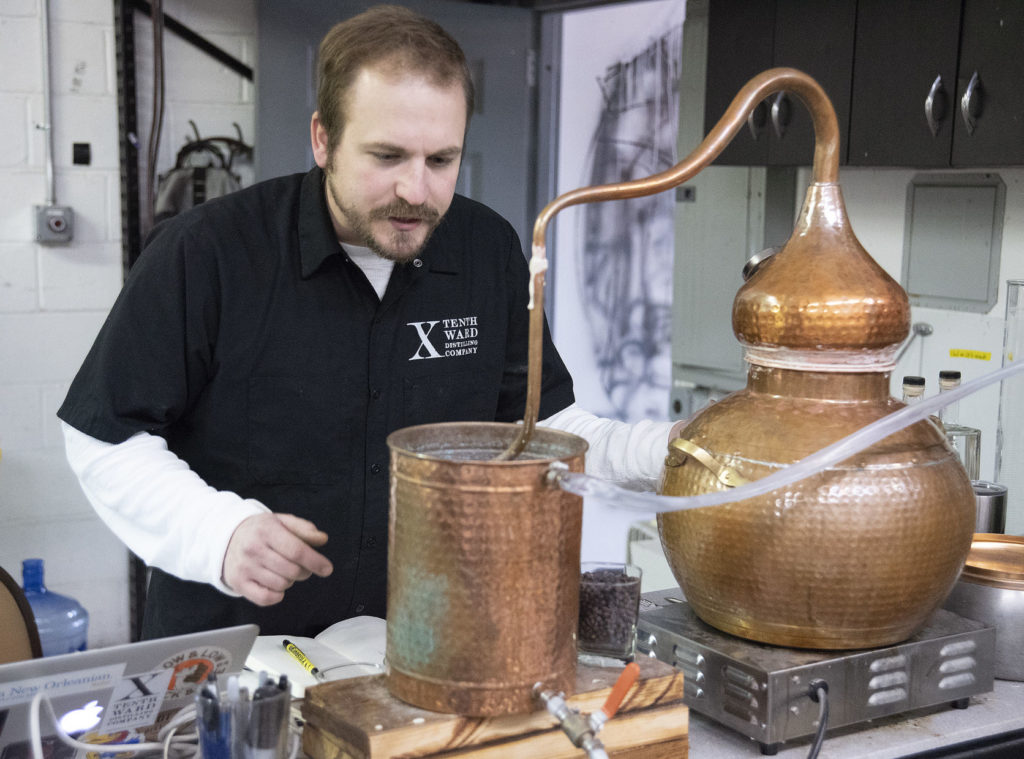 It’s an unusual spirit for a Maryland producer, just like genever. The state Distillers Guild is only aware of four distilleries currently manufacturing the gin-like spirit, said president Jaime Windon. The first was Sangfroid, but two — Tenth Ward and McClintock — are in Frederick. For both companies, it fits in with an ethos of honoring Maryland distilling history.
It’s an unusual spirit for a Maryland producer, just like genever. The state Distillers Guild is only aware of four distilleries currently manufacturing the gin-like spirit, said president Jaime Windon. The first was Sangfroid, but two — Tenth Ward and McClintock — are in Frederick. For both companies, it fits in with an ethos of honoring Maryland distilling history.
“With the amount of German and Dutch settlers here, I’d be shocked if no one was making genever,” Bumpers said. “It’s such a cultural spirit that for a lot of people — when they came over here — it’s not like they’re going to stop drinking it.”

